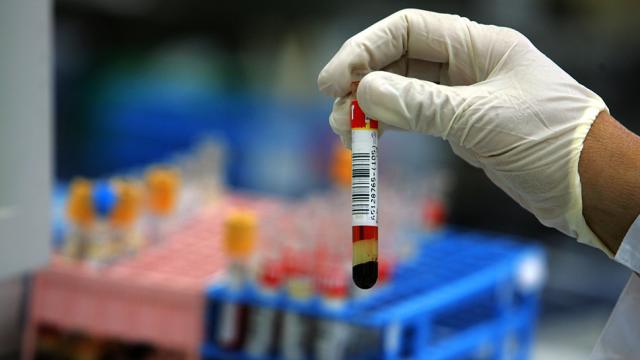The need for more blood donations is a seemingly never-ending problem. Between interruptions to the donation process, fear of needles, rare blood types, and a general lack of awareness, life-saving blood supplies are difficult to keep stocked. But a team of researchers has found a way to manufacture artificial blood that could make a major impact on millions.
Photo: Getty
Scientists working at the University of Bristol and NHS Blood and Transplant recently published their research in the journal Nature. They have shown that a virtually unlimited blood supply can be achieved through a process of “immortalising” stem cells at an early stage.
Previously, researchers have been able to synthesise blood by isolating a type of stem cell that manufactures red blood cells and manipulating it to do its work in a lab. Unfortunately, the stem cells tend to become exhausted when they have produced around 50,000 red blood cells. An average bag of blood contains about a trillion red blood cells, making that technique unfeasible for any real-world application.
Through a complicated process, the researchers have found that they can hold the stem cell in its pre-exhausted state and coax it to produce red blood cells indefinitely.
Of course, there’s a catch. The process is expensive and isn’t currently viable for solving the world’s blood supply shortages. The team has only produced “litres” of its own product, thus far.
“The intention is not to replace blood donation but provide specialist treatment for specific patient groups,” Dr Dave Anstee, director of the NIHR Blood and Transplant Research Unit at Bristol and NHS, writes in a statement. According to Anstee, “The patients who stand to potentially benefit most are those with complex and life-limiting conditions like sickle cell disease and thalassemia, which can require multiple transfusions of well-matched blood.”
Following clinical trials, the technique would also benefit people with the rarest blood types. Black, Asian and minority ethnic communities have the most prevalent occurrence of rare blood types like O Rh positive and B Rh positive.
According to the Australian Red Cross, one in three Australians will need blood in their lifetime, and over 25,000 blood donations are needed each week. That’s a tall order. But, if all goes well, the costs will surely come down as the manufacturing process is refined. This breakthrough could mean a lot of lives saved and fewer needle pricks for squeamish donors.
[Nature via Huffington Post]
